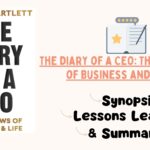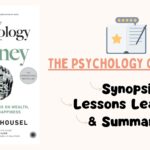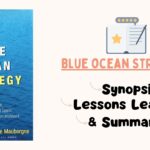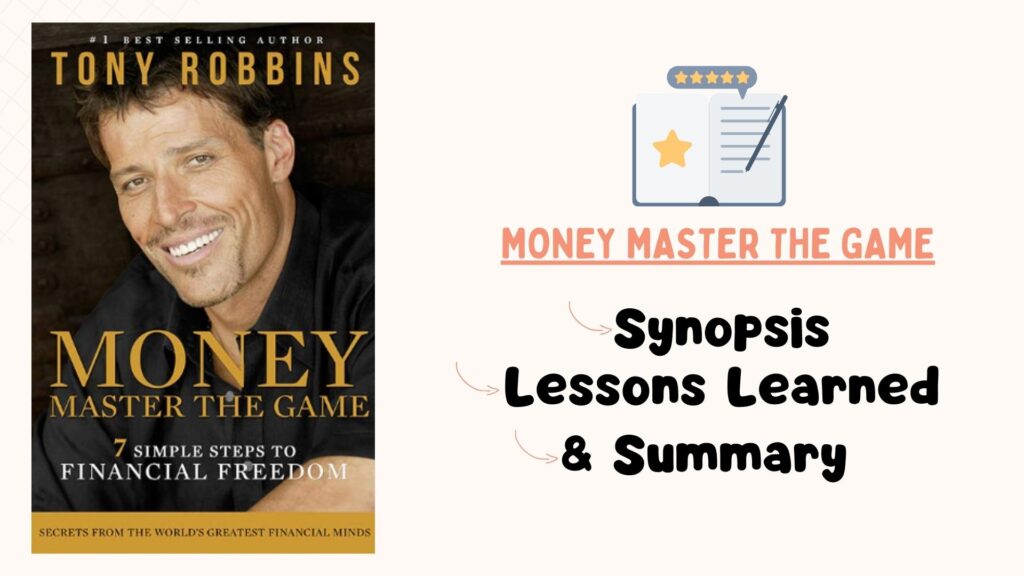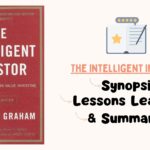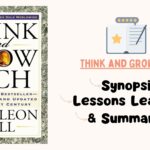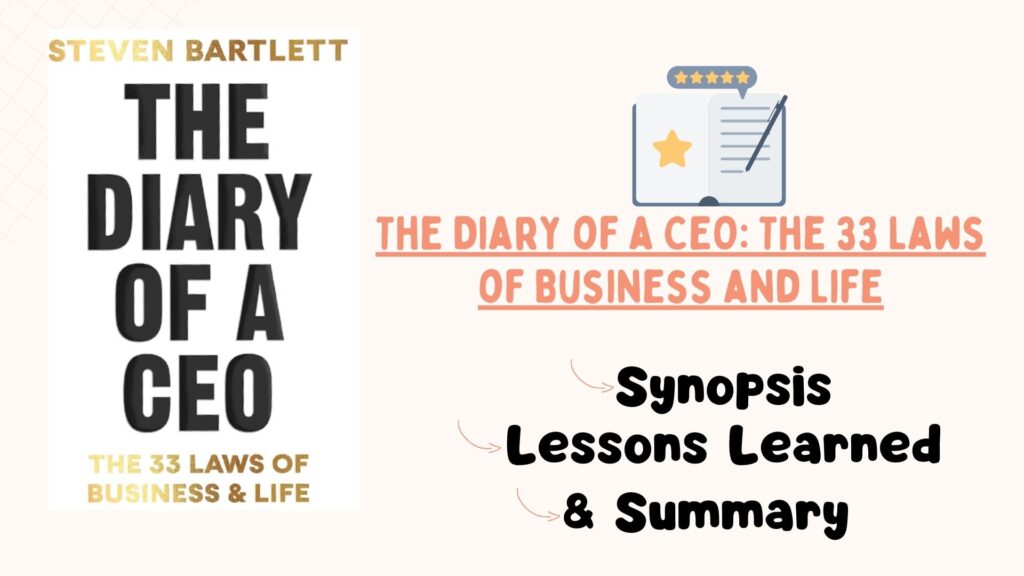Greetings fellow financial enthusiasts! After delving into the pages of “Money – Master The Game” by Tony Robbins, I’ve unearthed a treasure trove of life-changing financial insights. From investment strategies to wealth-building tips, this book provides a comprehensive guide to achieving financial freedom. Robbins’s expertise in the field shines through as he uncovers the most dangerous money myths and dispels them with logical explanations. If you’re ready to take control of your financial future, buckle up for a thrilling ride through the world of money management!
Key Takeaways:
- Compound interest: Harness the power of compounding to grow wealth over time.
- Asset allocation: Diversify your investments to minimize risk and maximize returns.
- Financial freedom: Create a plan to achieve financial independence and live life on your own terms.
- Goal setting: Set clear financial goals and take consistent action to achieve them.
- Investing in index funds: Utilize low-cost index funds as a reliable investment strategy.
- Tax efficiency: Minimize taxes through strategic financial planning and investment choices.
- Building a financial portfolio: Learn to build a diversified portfolio that aligns with your risk tolerance and goals.
Setting Financial Goals
Any successful financial plan starts with clear and achievable goals. Without setting specific targets, it’s easy to wander aimlessly and lose sight of what you’re working towards. In his book “Money – Master The Game,” Tony Robbins emphasizes the importance of setting financial goals as the foundation for building wealth and achieving financial freedom.
The Importance of Financial Goals
Any journey toward financial success begins with a destination in mind. Setting clear financial goals gives you something to aim for and helps you stay focused and motivated along the way. Without a clearly defined vision of your financial objectives, it’s easy to get sidetracked by daily expenses, impulsive purchases, and short-term temptations. By setting financial goals, you are setting yourself up for success and creating a roadmap for your financial future.
How to Set Achievable Financial Goals
Any successful financial goal-setting requires a few key components. First, your goals should be specific, measurable, achievable, relevant, and time-bound (SMART). This means clearly defining what you want to achieve, setting milestones to track your progress, ensuring that your goals are within reach, aligning them with your values and priorities, and giving yourself a deadline to work towards. Robbins suggests breaking down your long-term financial goals into smaller, more manageable targets, making them less daunting and more achievable.
Goals should be inspiring, yet realistic, challenging you to strive for something greater while still being attainable. Understanding the reasons behind your goals, whether it’s providing for your family, retiring comfortably, or pursuing a passion, will keep you motivated and focused on achieving them.

The Power of Saving
Some say that the true power of wealth lies in saving. In his book “Money – Master The Game”, Tony Robbins emphasizes the importance of developing a habit of saving and investing in order to achieve financial freedom. Saving a portion of our income not only provides a safety net for unexpected expenses, but also allows us to build a foundation for future wealth and security. Robbins believes that by embracing the power of saving, we can take control of our financial destiny and create the life we desire.
The Rule of 5 Second Decisions
On our path to financial success, Tony Robbins introduces the concept of the “5 Second Rule” – the idea that we have a brief window of opportunity to make decisions that can significantly impact our financial future. Whether it’s making a choice to save a portion of our income, invest in the stock market, or avoid unnecessary expenses, Robbins suggests that we can train ourselves to make quick, positive decisions that will lead to long-term financial success.
On the flip side, procrastination and indecision can lead to missed opportunities and financial setbacks. By mastering the art of making quick, informed decisions, we can set ourselves on the path to financial abundance.
Turning Pennies into Fortunes
Pennies have the potential to turn into fortunes through the power of compounding. Robbins encourages readers to start small and consistently invest even the smallest amounts of money. By leveraging the compounding effect, small contributions made regularly can grow into substantial wealth over time. This concept highlights the power of consistent action and the ability to turn even the smallest savings into a significant financial foundation.
into a financial future of abundance, leveraging the power of compounding and consistent action can lead to exponential growth. By starting with small contributions and staying committed to regular saving and investing, individuals can build the foundation for lasting financial security and freedom.
Investing Wisely
Now that you’ve made the decision to invest, it’s crucial to do so wisely. There are important principles to understand and strategies to implement that can help you grow your wealth and achieve financial independence. In this chapter, we’ll explore key concepts and practical tips for investing wisely.
Understanding Risk vs. Reward
Risk and reward go hand in hand when it comes to investing. It’s important to understand that higher potential returns typically come with higher levels of risk. However, not all risks are created equal. Some risks can be mitigated through proper research, diversification, and a long-term investment approach. Tony Robbins emphasizes the importance of understanding the relationship between risk and reward, and developing a strategy that aligns with your financial goals and risk tolerance.
When investing, it’s important to consider your comfort level with risk and the timeline for achieving your financial goals. Diversification is another key factor in managing risk, as it spreads your investments across different asset classes and industries, reducing the impact of any one investment performing poorly.
Diversification: Not All Eggs in One Basket
One of the most fundamental principles of investing is diversification. As the age-old saying goes, “Don’t put all your eggs in one basket.” This means spreading your investments across various assets, such as stocks, bonds, real estate, and commodities. Diversification helps to reduce the overall risk in your investment portfolio while potentially maximizing returns.
Investing in a diversified portfolio can help you weather market fluctuations and economic downturns. By spreading your investments across different asset classes, you can minimize the impact of any one investment underperforming, and increase the likelihood of achieving steady, long-term growth.
Creating a Lifetime Income Plan
Unlike other financial self-help books, “Money – Master The Game” by Tony Robbins takes a holistic approach to securing your financial future. One of the key concepts Robbins emphasizes is the importance of creating a lifetime income plan. This plan involves structuring your finances in a way that allows you to generate a consistent income throughout your life, even after retirement.
The Myth of Retirement
For many people, the idea of retirement is a distant dream, one that they hope to achieve after decades of hard work. However, Tony Robbins challenges the traditional notion of retirement in “Money – Master The Game”. He argues that the concept of retirement is flawed because it suggests that one should stop working and earning an income after a certain age. Instead, Robbins advocates for the idea of achieving financial freedom and creating a lifestyle where work is optional, not mandatory.
Building Your Own Financial Freedom
Creating a lifetime income plan is about building your own financial freedom. Robbins encourages readers to take control of their financial destiny by investing in assets that can provide a steady stream of income for the long term. By diversifying your investment portfolio and focusing on assets that offer resilience and growth potential, you can create a plan that will sustain you throughout your lifetime.
For instance, Robbins suggests investing in a mix of stocks, bonds, and real estate to build a portfolio that is well-positioned to weather market fluctuations and economic changes. This proactive approach to building a lifetime income plan can help individuals achieve security and peace of mind as they plan for their future.
FAQ
Q: What is the book “Money – Master The Game” about?
A: “Money – Master The Game” by Tony Robbins is a comprehensive guide to personal finance and investment strategies, aimed at helping readers achieve financial freedom and security.
Q: Who is Tony Robbins?
A: Tony Robbins is a renowned life coach, author, and motivational speaker known for his best-selling books and seminars on personal development and success.
Q: What are some key takeaways from “Money – Master The Game”?
A: The book emphasizes the importance of creating a well-structured financial plan, understanding the power of compounding, and making informed investment decisions.
Q: How does “Money – Master The Game” cater to beginners in finance?
A: Tony Robbins breaks down complex financial concepts into easy-to-understand language, making it accessible for beginners to grasp important money management strategies.
Q: What investment strategies are discussed in the book?
A: The book covers various investment strategies, including asset allocation, diversification, and the importance of minimizing fees to maximize returns.
Q: Does “Money – Master The Game” address the psychology of money?
A: Yes, the book delves into the psychological aspects of money management, discussing how emotions influence financial decision-making and how to overcome common cognitive biases.
Q: Is “Money – Master The Game” suitable for people of all income levels?
A: Absolutely! The book provides valuable insights and actionable advice for individuals at any income level, offering practical tips for building wealth regardless of financial status.


